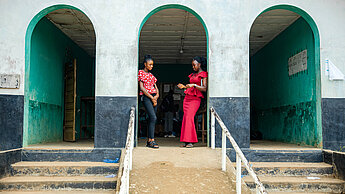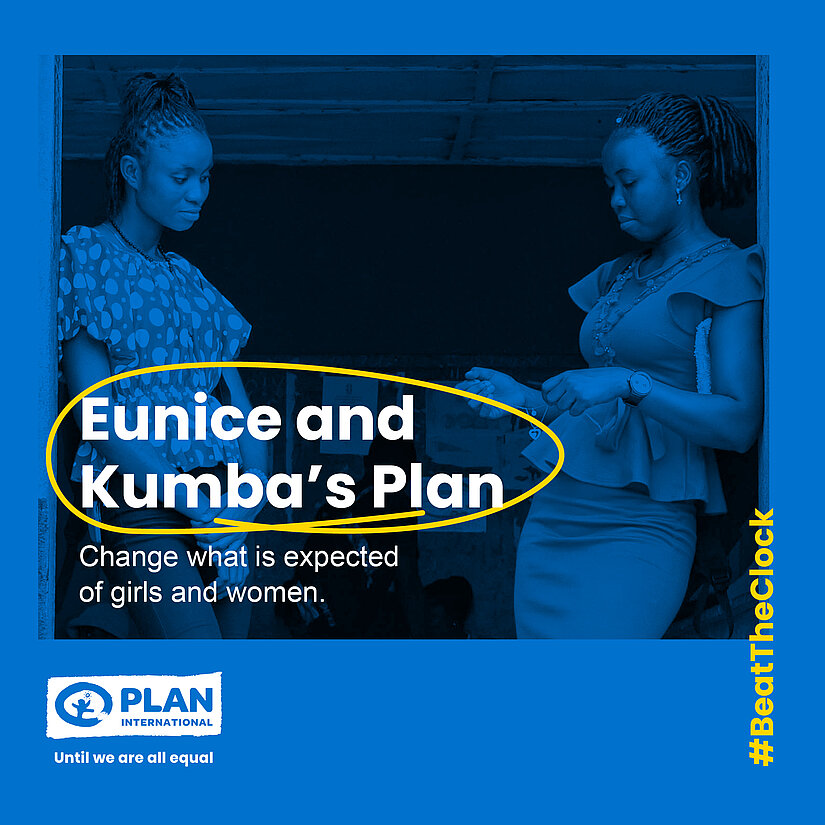When Eunice left school, she was living out a story that’s common for young women in Kailahun, Sierra Leone. “When you become a [school] dropout, you feel very much sad,” she says. “You feel isolated."
Eunice is one of five children in a family she describes as poor. She left school when her mother died in 2019, leaving her as the primary earner for her family. She became a mother herself when she was 18 years old.
In rural Sierra Leone, 75% of girls don’t continue their education after primary school. None of Eunice's siblings went to school. Eunice’s experience was the norm.
In 2021, Eunice was invited to enrol in a four-year Plan International programme that supports out-of-school young women to become teachers. There, she met Kumba, another young single mother at a similar crossroads. Kumba had dropped out of school when her mother fell ill and hadn’t found a way back to the classroom until the programme offered an alternative.
Eunice, Kumba, and 200 other young women in their cohort had the chance to catch up on the learning they’d missed and get certified as schoolteachers with real-life classroom experience. They were supported with tutors, mentorship, stipends and childcare to help them complete the programme. They worked hard to pursue their certification via distance learning while juggling their other responsibilities.
“A woman's education ends in the kitchen”
In Sierra Leone, only 28% of teachers are female. Yet it's been shown that when girls have women teachers they are more likely to attend school and excel with their studies. They're also more likely to raise their concerns and get the support they need.
“A lot of my friends in the programme had challenges with their husbands at first,” says Eunice. “The men believed that if their wives were educated, it would create competition and marital problems at home.”
Kumba, Eunice, and the other project participants found they were challenging strongly held beliefs about a woman’s place. "People say that a woman's education ends in the kitchen," shares Kumba. "I totally disagree with them all.”
But things are changing and men are becoming more supportive of the women in the programme. “We have to keep talking to the men who are jealous of us. We can show them that when a woman is empowered, she brings the benefits home with her,” says Kumba.
She has also seen a change in her community. “Before, women were not considered when it comes to decision-making.” Now, when people are trying to make decisions, they often seek her out to join the discussion.
Eunice, too, has noticed that her friends come to her for advice and are keen to learn from her experiences. She feels like a changed person from when she dropped out of school. “When you can do something on your own for the future, you feel proud,” she says. “And when a woman is educated, a whole nation can be educated.”


